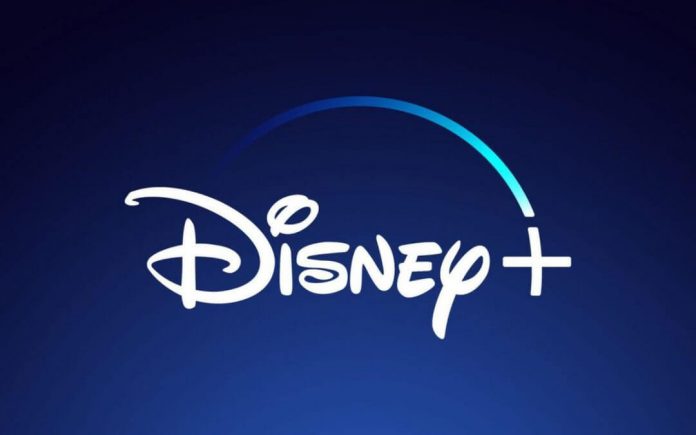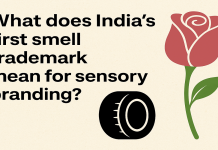This article is written by Vikash Dhaka, pursuing a Diploma in Intellectual Property, Media, and Entertainment Laws from Lawsikho.com.
Table of Contents
Introduction
“ May the Force be with you.” – Star Wars, 1977. Such iconic movie quotes are still fresh in the memories of our generation despite new films releasing every day. These films are considered to have earned cult status which makes them more prone to infringement in the process of gaining more views. Although these can be protected under intellectual property we need to ensure that cultural misappropriation does not happen which was ignored in the past. With the invention of different technologies, we are now open to different cultures and value systems in different parts of the world through our smartphones. This goes to prove the world is now a ‘Global Village’ and so we need to ensure that misappropriation of a culture of any tribe does not happen. In this article, the author has discussed whether a cultural phrase or quote can be registered under trademark or not by talking about one of the famous children’s movies that made ‘Hakuna Matata’ famous around the world.
Background
The Walt Disney Company, popularly called Disney, is an American company that is an integral part of the media and entertainment industry. Disney is a well-known player in the American animation industry. Disney has many film studios under its arm such as 20th Century Studio, Marvel Studios, Pixar, etc. Apart from film studios, Disney has many television networks such as Disney Channel, Freeform, ESPN, etc. The company has many online streaming platforms for example Disney+, Hotstar, Hulu, etc. Indeed, Disney is at the top of the game in the media and entertainment industry.
The term ‘Hakuna Matata‘ was used in the film ‘The Lion King‘ produced by Disney only in the year 2019 and became one of the highest-grossing films of all time. The film was the remake of the animated film ‘Lion King’ released in 1994 and produced by Disney. In the 1994 animated film ‘Lion King’, the term ‘Hakuna Matata’ was used in one of the songs of the movie and Disney filed for a trademark for the term ‘Hakuna Matata’ and in the year 2003, US Trademark and Patent Office granted the trademark to Disney. The trademark is limited to T-shirts, clothes, hats, etc. The term ‘Hakuna Matata’ means no worries. ‘Hakuna Matata’ is a Swahili language phrase spoken in most parts of Africa. Many were opposing Disney’s monopoly over the term ‘Hakuna Matata’. One such personality is Shelton Mpala, a Zimbabwe activist who filed a petition against Disney over its trademark registration on ‘Hakuna Matata’. Around two lakh people signed the online petition.
What can be trademarked?
One can register a symbol, sign, logo or name or phrase, etc as a trademark. Trademark helps the general public to distinguish the goods and services in the market from different competitors. There are many examples such as Reynolds, McDonald’s, etc. that are registered as a trademark.
Many phrases or terms can’t be registered as a trademark. For example, we can’t register generic terms, government symbols, immoral, deceptive, etc. as trademarks. To register a trademark, the trademark should be descriptive, generic, and distinct. Descriptive marks help in identifying the characteristics or features of the product. Generic marks are the terms that are common and don’t help in identifying the product. Distinctive marks are the fanciful names that help in identifying the goods and services.
Cultural appropriation and trademark
The inappropriate use of any custom, ideas, words by different cultural people is known as cultural appropriation. In the IP world, many companies use different cultural terms as a trademark which leads to backlash from the public. The big corporations use the traditional names, designs, music for their profit without giving acknowledgment to that culture. Such cultural appropriation is not something very new. In India, there were battles between the American companies and Indian companies for registering the word ‘Basmati’. Similarly, the word khadi and yoga has been registered as trademarks in many countries.
What can we do to avoid such cultural appropriation? The answer lies in the trademark law only. There are different categories of a mark in a trademark. One of them is the Certification mark. Certification marks can act as a tool to forbid cultural appropriation. It acts as a guarantee to the characteristics or features associated with the products in that region. Certification marks can be registered under a trademark without any evidence of secondary meaning. The other relevant category is the collective mark. Collective marks indicate the origin of certain products from a particular association to the general public. It is owned by a member of the association.
Case studies
‘Kimono’ controversy
Kim Kardashian is an American actor and entrepreneur. She engages in the business of clothing and named one of the shapewear brands as ‘Kimono.’ ‘Kimono’ is a traditional Japanese attire worn by women. ‘Kimono’ is considered as national attire in Japan. Many petitions were filed to remove the brand name as ‘Kimono’. The sentiments of Japanese people were hurt because of the brand name ‘Kimono’. Several renowned personalities resisted one of them being Daisaku Kadokawa who was the mayor of Kyoto who showed his concern and sent a letter to Kim Kardashian. He talks at length about the importance of the Kimono in Japanese culture. More than one lakh people signed the online petition to change the brand name and stressed the impact of cultural disrespect by the brand. Later, the brand name was changed to ‘Skims.’ Kim Kardashian suffered millions in losses because of a simple change in the name of the brand. There were thousands of articles on the brand controversy which overall affected the reputation and brand of Kim Kardashian.
‘Aloha Poke’ controversy
A restaurant owner in Chicago filed a trademark application for registering the restaurant’s name as ‘Aloha Poke.’ The term ‘Aloha Poke’ is used by the native Hawaiians. The Restaurant owner succeeded in registering the term ‘Aloha Poke’ as the name of the restaurant. He further sent notices to the contemporary competitors for not using the term ‘Aloha Poke’ as their restaurant’s name. Several Hawaiian companies expressed their concern over the cultural appropriation of their native language. Many online petitions were filed against the use of cultural words as a brand name. Upon receiving such backlashes, the owner of the restaurant made a statement that he never intended to trademark the Hawaiian words individually but the two words ‘Aloha Poke’ in pairs are protected under the trademark. They intended to protect the brand name of the restaurant. There was no action against the people who received the legal notice. However, there exists strong friction against the use of such cultural words for their monetary benefits. Strong personalities such as Mark Kaniela oppose the idea of registering such cultural words. He is a very popular American politician and a member of the Hawaii House of representatives. He further cited that the owner of the restaurant threatens the Hawaiian people for using the terms ‘Aloha’ and ‘Aloha Poke’ in respect to the restaurant. Such restrictions will affect the business of the Hawaiian people and a threat to their culture and language heritage. He filed a petition restricting the owner of the restaurant to use the ‘Aloha Poke’, ‘Aloha’, and ‘Poke’ in any manner.
When a person approaches USPTO (the United States Patent and Trademark Office) for registering a trademark, the officials in the USPTO run through the database and check whether the applicant’s trademark is registered or not. If not registered, USPTO grants the trademark to the applicant.
The word ‘Aloha’ is one of the most used words by the Hawaiians. It means hello, love and goodbye. The word ‘Poke’ refers to a very famous Hawaiian dish and often people connect the dish with pizza. The owner of the restaurant sent a legal notice to restrict the use of ‘Poke’ in Hawaiian restaurants. The mere registration of the word ‘Aloha Poke’ may not prohibit others to use the same. The native Hawaiians have been using the words for centuries and can challenge the registration based on the concept of prior use.
Conclusion and suggestions
It has become a practice that many big corporations and companies started to use the cultural words of various languages as their brand name. Companies tend to choose something unique and catchy but that leads them into many troubles. One such example is Disney’s trademark on ‘Hakuna Matata’. ‘Hakuna Matata’ is a word used and spoken by the Swahili people. Disney got the word registered and claimed the trademark. The US Patent and Trademark Office granted the trademark on the word ‘Hakuna Matata’. The USPTO doesn’t bother about cultural appropriation; rather, it looks into the database to find whether the applicant’s word is already registered or not. Indeed, there is a flaw in the system. However, If we look at some similar controversy, Kim Kardashian’s shape-wear brand changed its name from ‘Kimono’ to ‘Skims’ upon receiving backlash from Japanese people. She suffered a huge loss and damaged the reputation of her brand. Similarly, in the ‘Aloha Poke’ case, the Hawaiian people had filed many petitions for registering the trademark on their cultural words.
So far, no laws are prohibiting cultural appropriation by these corporations and companies. However, people can combat such cultural appropriation using the trademark law. There are different categories of a mark under trademarks such as certification mark or collective mark. These marks can act as a tool to prohibit such cultural appropriations. Even some can take defense under the ‘prior use’ principle.
References
- https://news.bloomberglaw.com/
- https://www.mondaq.com/
- https://www.upcounsel.com/
- https://www.ipwatchdog.com/
- https://www.hawaiipublicradio.org/
- https://lizerbramlaw.com/
- https://www.lgt-law.com/
- https://www.mewburn.com/
Students of LawSikho courses regularly produce writing assignments and work on practical exercises as a part of their coursework and develop themselves in real-life practical skills.
LawSikho has created a telegram group for exchanging legal knowledge, referrals, and various opportunities. You can click on this link and join:
 Serato DJ Crack 2025Serato DJ PRO Crack
Serato DJ Crack 2025Serato DJ PRO Crack










 Allow notifications
Allow notifications


